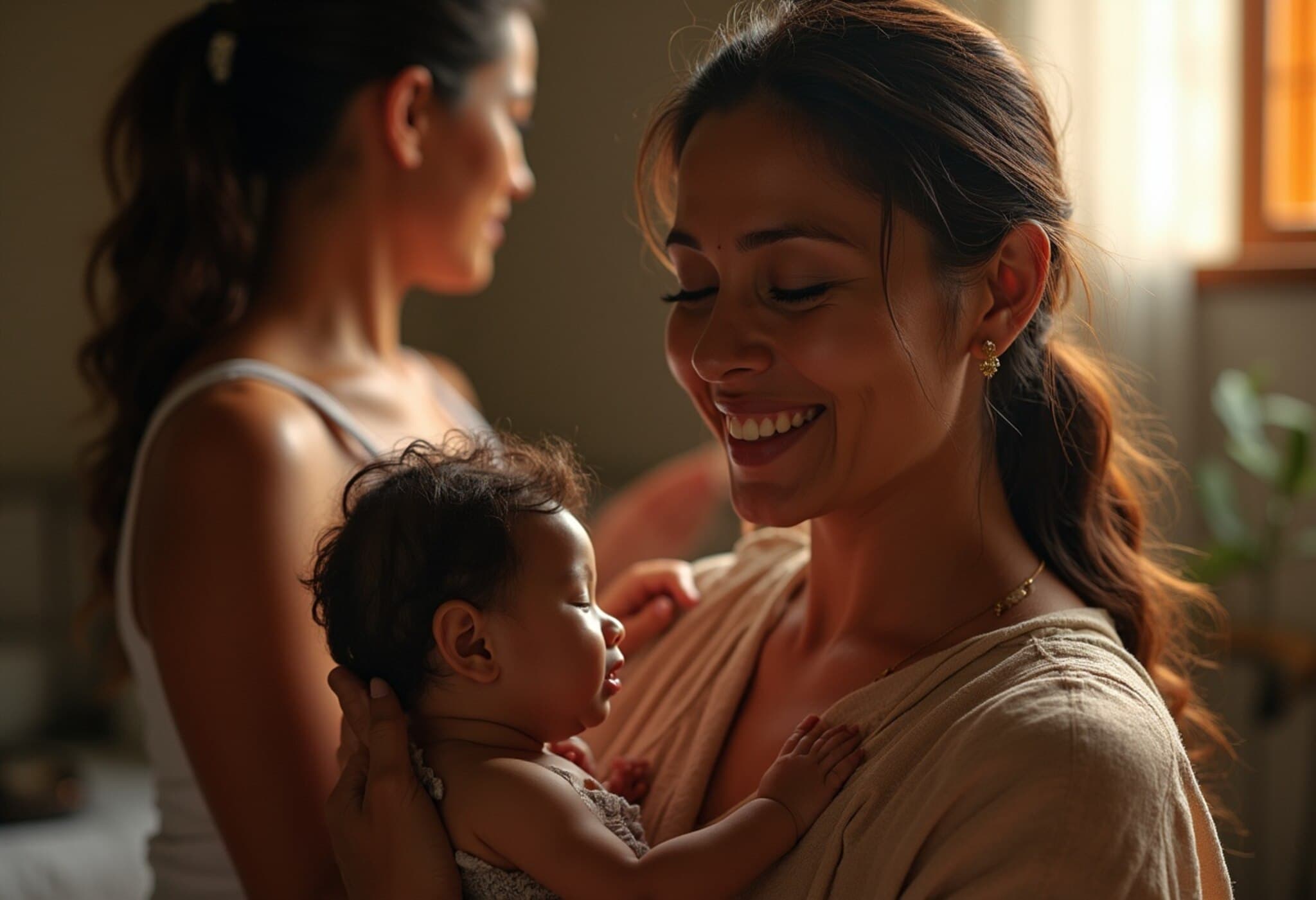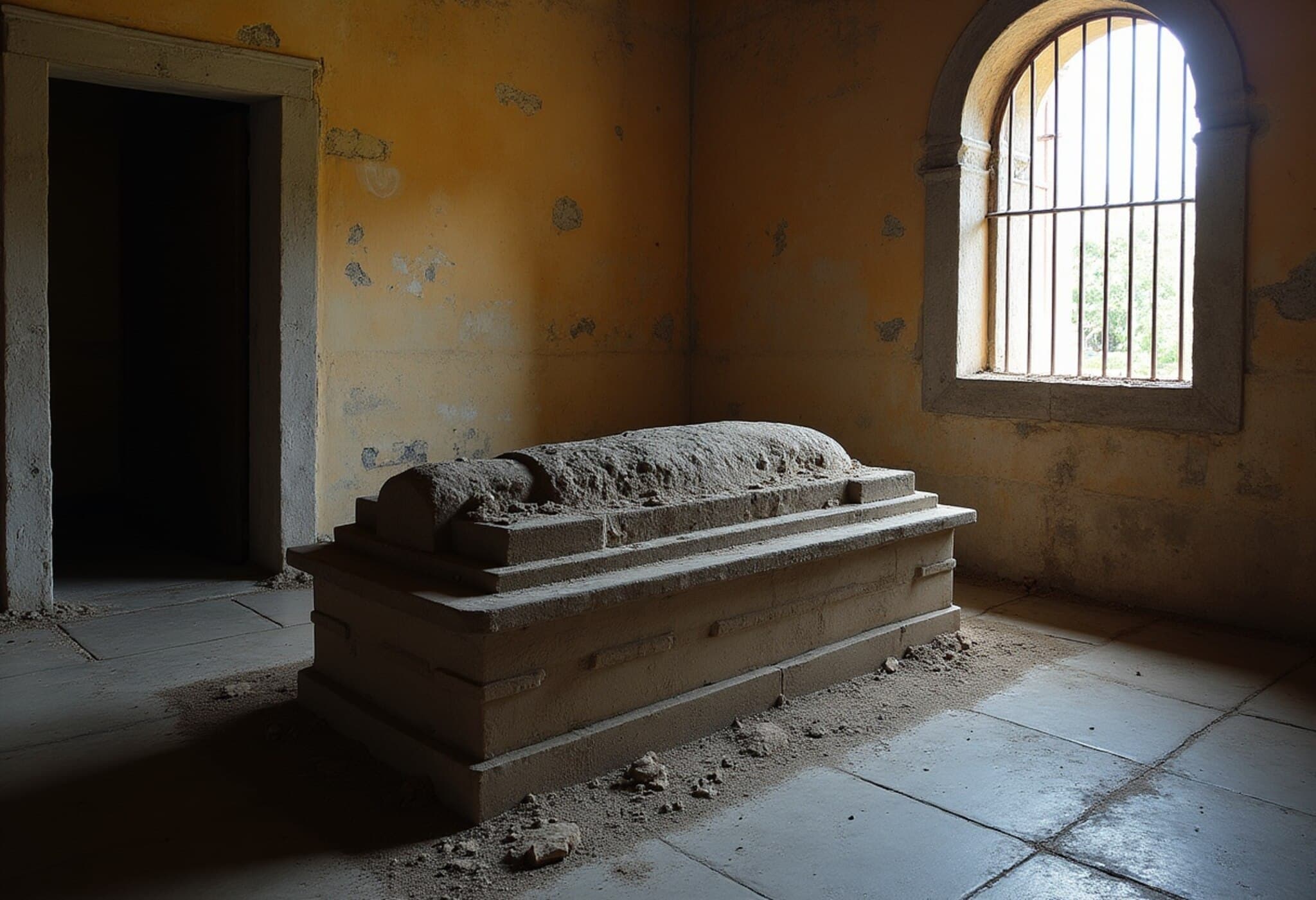Reclaiming Tradition: Mexico's New Mothers Turn to Indigenous Midwives
In the heart of Mexico City, a quiet but profound shift is taking place among new mothers. Increasingly, women like Kay Nicte Cisneros García are seeking out midwives who revive centuries-old Indigenous postpartum rituals, finding in these ancient practices a deeply personal and holistic alternative to the clinical experience offered by conventional hospitals.
The Healing Touch of Sobada
On a tranquil morning, midwife Regina Llanes Granillo gently presses her hands onto Kay Nicte’s abdomen, performing a sobada—a traditional Mayan massage designed to coax the internal organs back to their rightful place after childbirth. The ritual is more than physical therapy; it is a spiritual reconnection, employing warm lavender and lemon balm oils to soothe and energize.
Midwives like Llanes seek a subtle ‘heartbeat’ or energetic pulse in the bellybutton, an intuitive measure of the woman’s internal balance. This sensory approach epitomizes the holistic philosophy behind many Indigenous healing arts, which center on harmonizing mind, body, and spirit during the vulnerable postpartum period.
A Birth Within a Birth
The postpartum phase, often described by mothers as a “birth within a birth,” is celebrated through ceremonial practices that honor the transformation from pregnancy to motherhood. After the sobada, Kay Nicte was carefully wrapped in layered shawls and guided to a herbal bath—a ritual cleansing with botanical infusions steeped in ancestral wisdom.
These customs underscore a communal approach to motherhood, contrasting sharply with the isolation many mothers experience in urban hospital settings, where the focus tends to be on medical interventions over emotional and cultural needs.
Rising Popularity Amid Modern Healthcare Challenges
Experts and researchers note a notable trend: just as Western nations have witnessed growing demand for midwifery and natural birth options, Mexico's urban centers are experiencing a renaissance of Indigenous midwifery practices. This rise stems not only from cultural reclamation but also as a response to the impersonal nature of institutional childbirth.
- Personalized Care: Midwives provide uninterrupted support and tailor care to individual mother’s rhythms and needs.
- Holistic Healing: Incorporating mind-body-spirit modalities that promote emotional wellbeing alongside physical recovery.
- Cultural Continuity: Ensuring that ancestral knowledge and Indigenous identity remain vibrant in modern parenthood.
The Socioeconomic Context and Policy Implications
From a policy and healthcare perspective, this movement challenges Mexico’s public health system to recognize and integrate Indigenous midwifery as a legitimate, culturally-sensitive alternative. Maternal health outcomes in Mexico, particularly among Indigenous populations, have historically lagged behind global targets, partly due to systemic barriers and cultural disconnects in care.
Supporting midwives with formal training, legal recognition, and resources could improve maternal health equity. Moreover, this trend echoes broader global conversations around empowering women to make informed choices in childbirth while respecting cultural heritage.
Expert Insight
Dr. Susana Martínez, a leading anthropologist specializing in Indigenous health, remarks, “These postpartum rituals encapsulate a resilient form of knowledge that has endured colonization and medical hegemony. Embracing these traditions not only supports mothers but also strengthens communities by preserving identity and healing.”
Conclusion: A Pathway to Empowered Motherhood
Amidst the bustling streets of Mexico City, where modern life often feels detached, new mothers are finding solace and empowerment through ancient rites. The resurgence of Indigenous midwifery offers a potent reminder that childbirth is not solely a medical event but a profound human experience woven into cultural fabric.
As Mexico grapples with modern healthcare challenges, this fusion of tradition and care underscores the value of diverse birthing experiences that honor women’s physical, emotional, and spiritual transformations.
Editor’s Note
The revival of Indigenous postpartum rituals in Mexico raises critical questions about how healthcare systems worldwide address cultural diversity and emotional wellbeing. For policymakers and health practitioners, integrating traditional knowledge with modern medicine could create more compassionate, effective maternal care pathways. For readers, it invites reflection on how birth practices shape identity, community, and wellness across generations.












